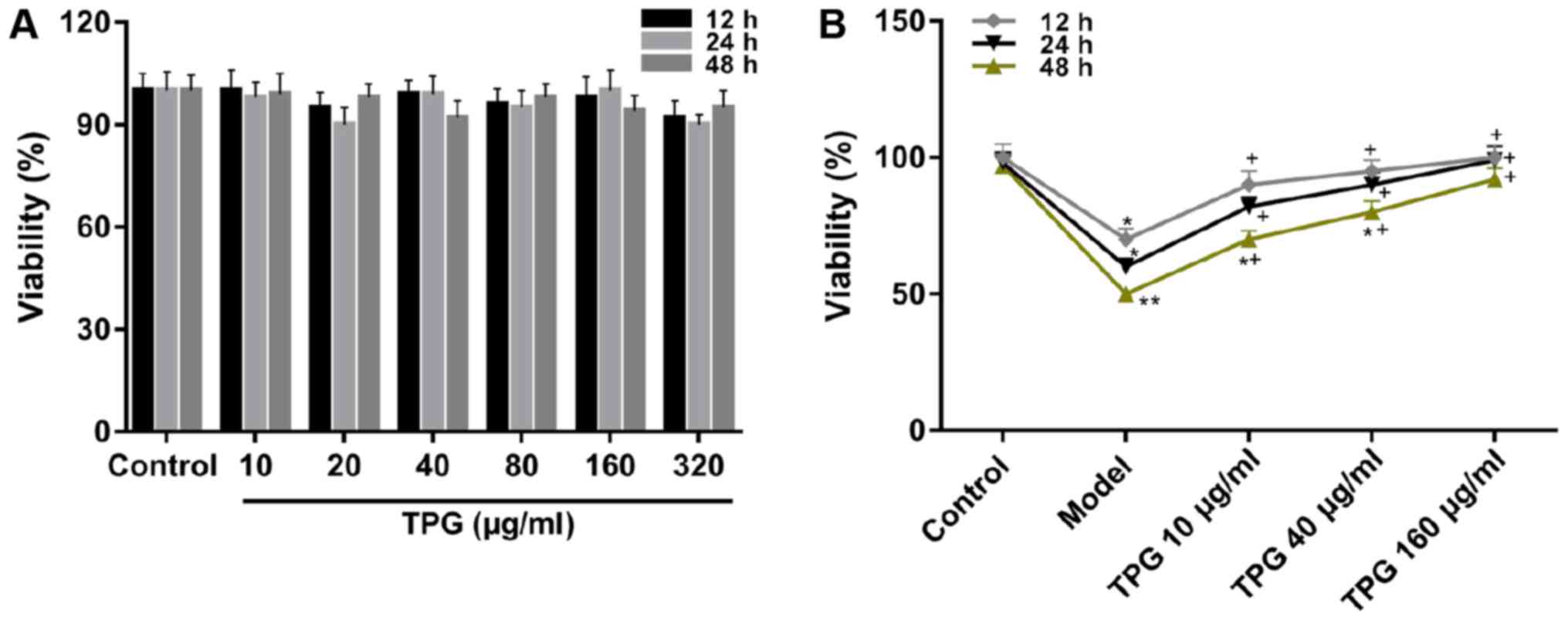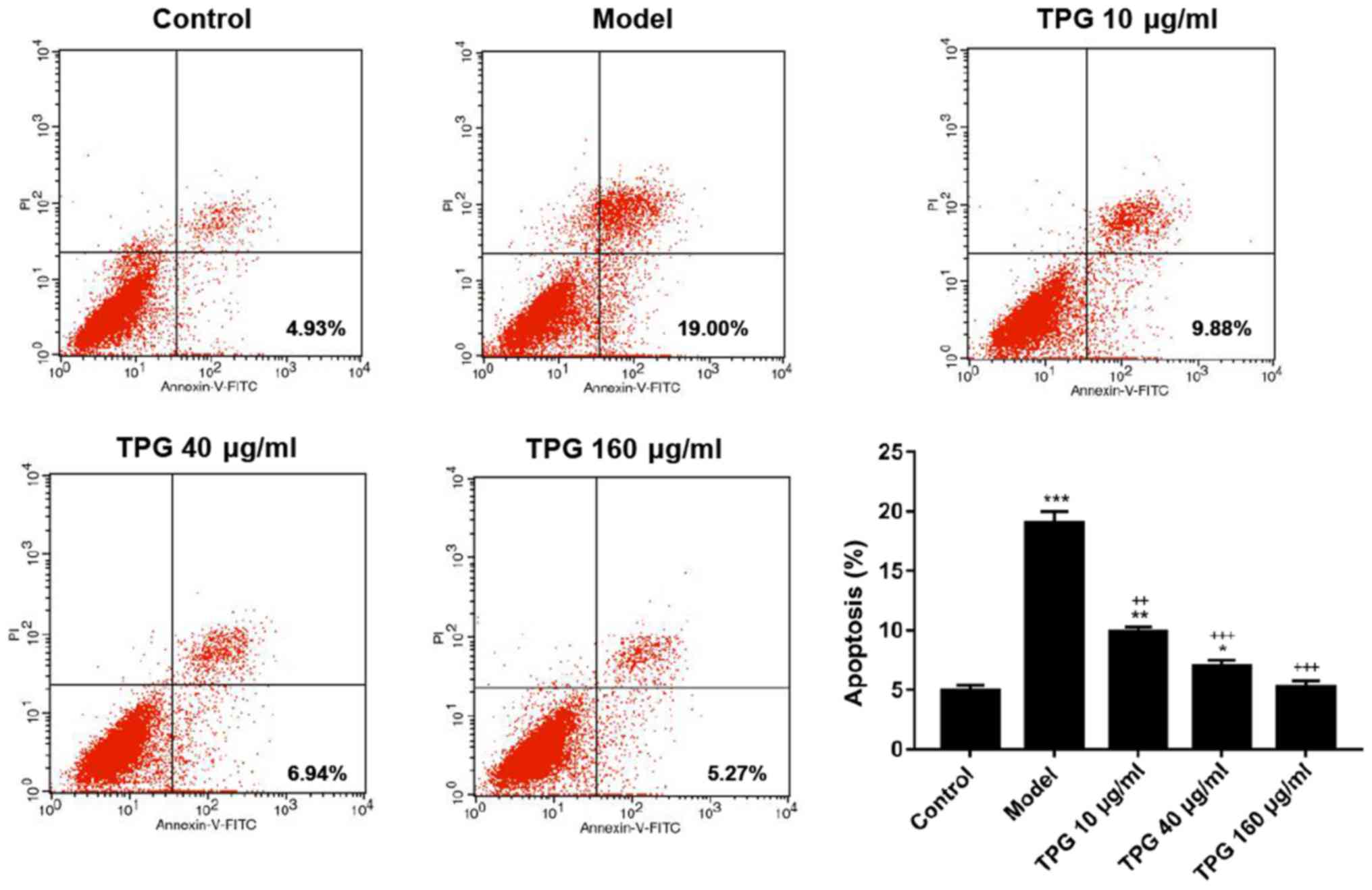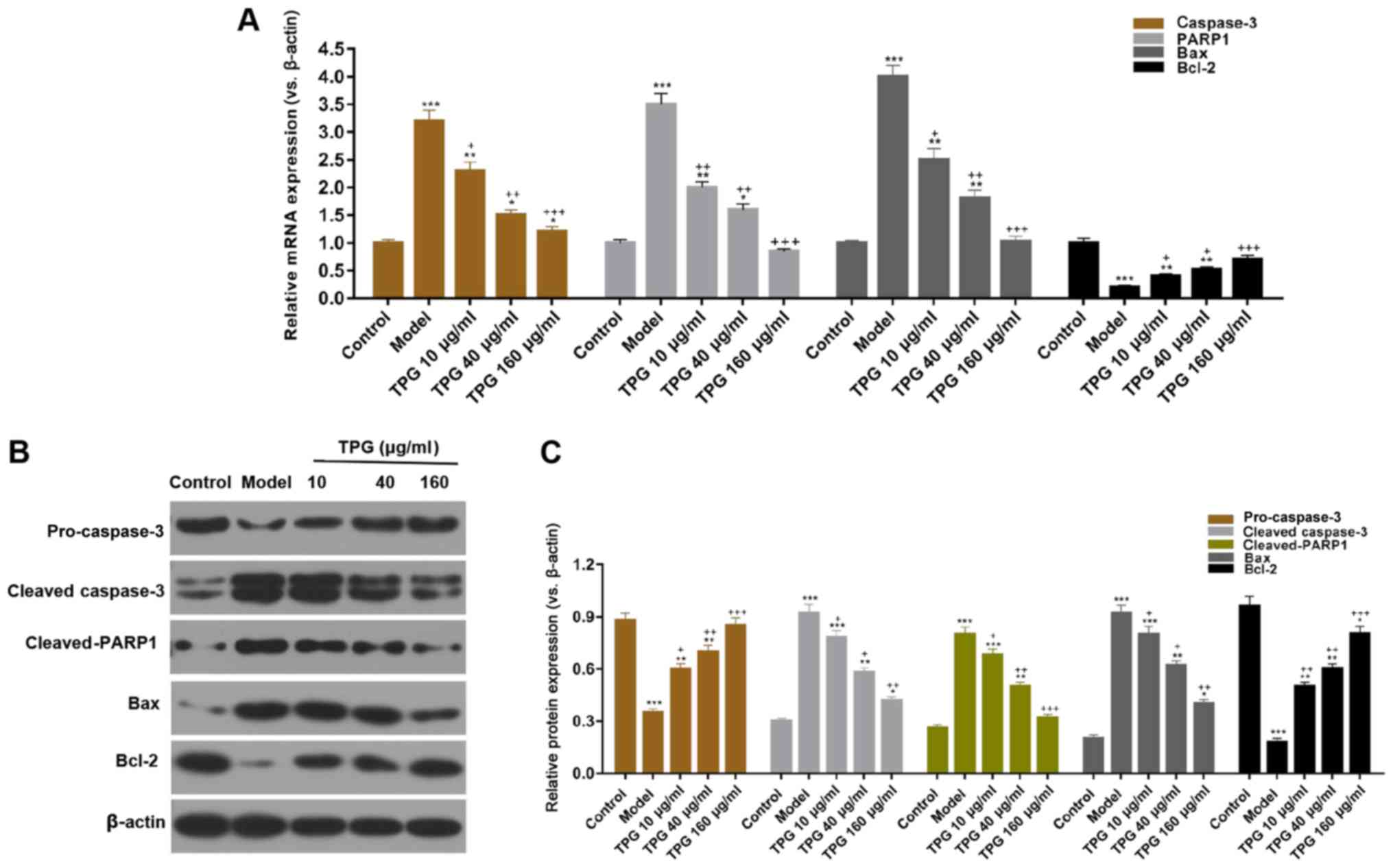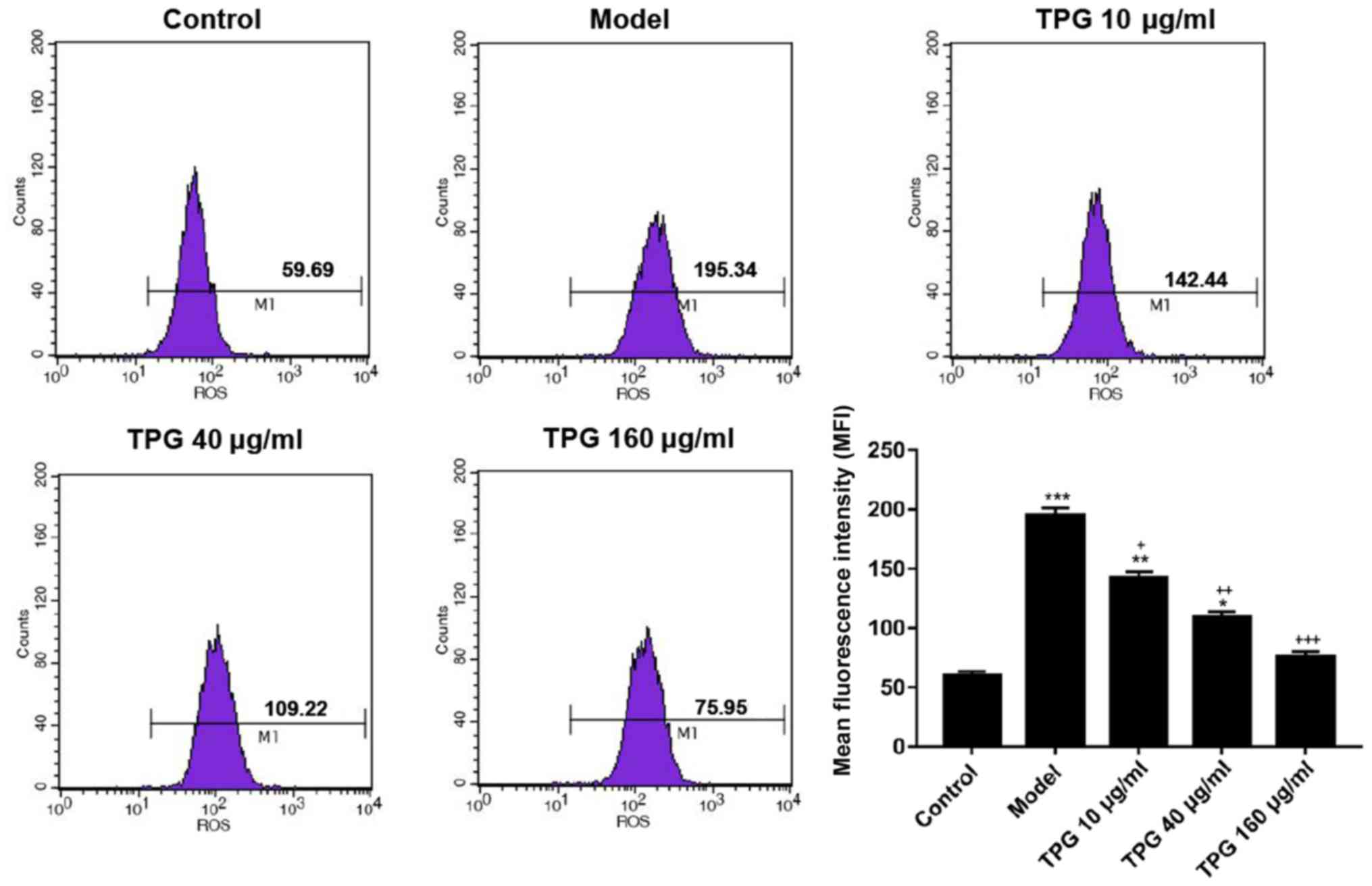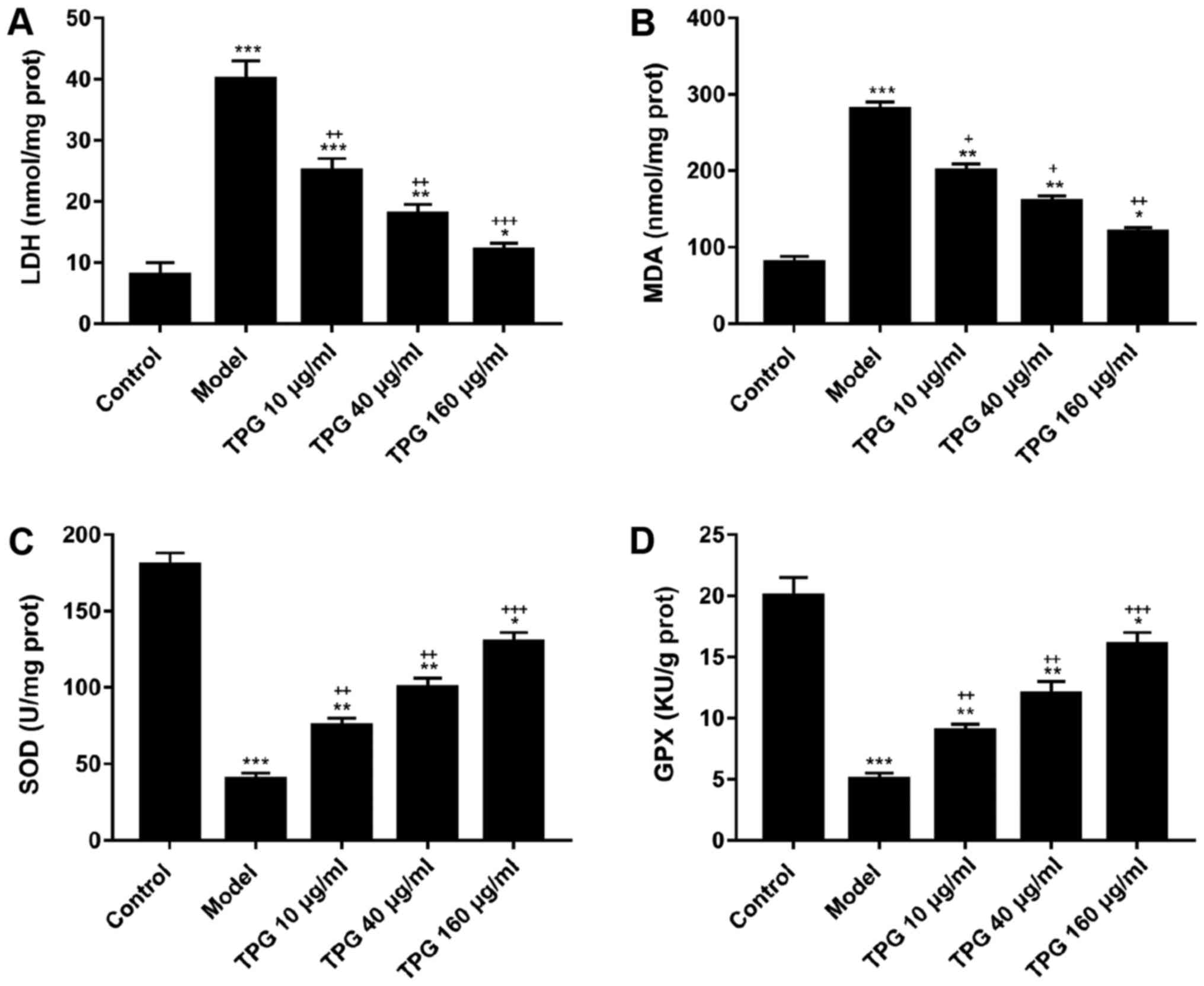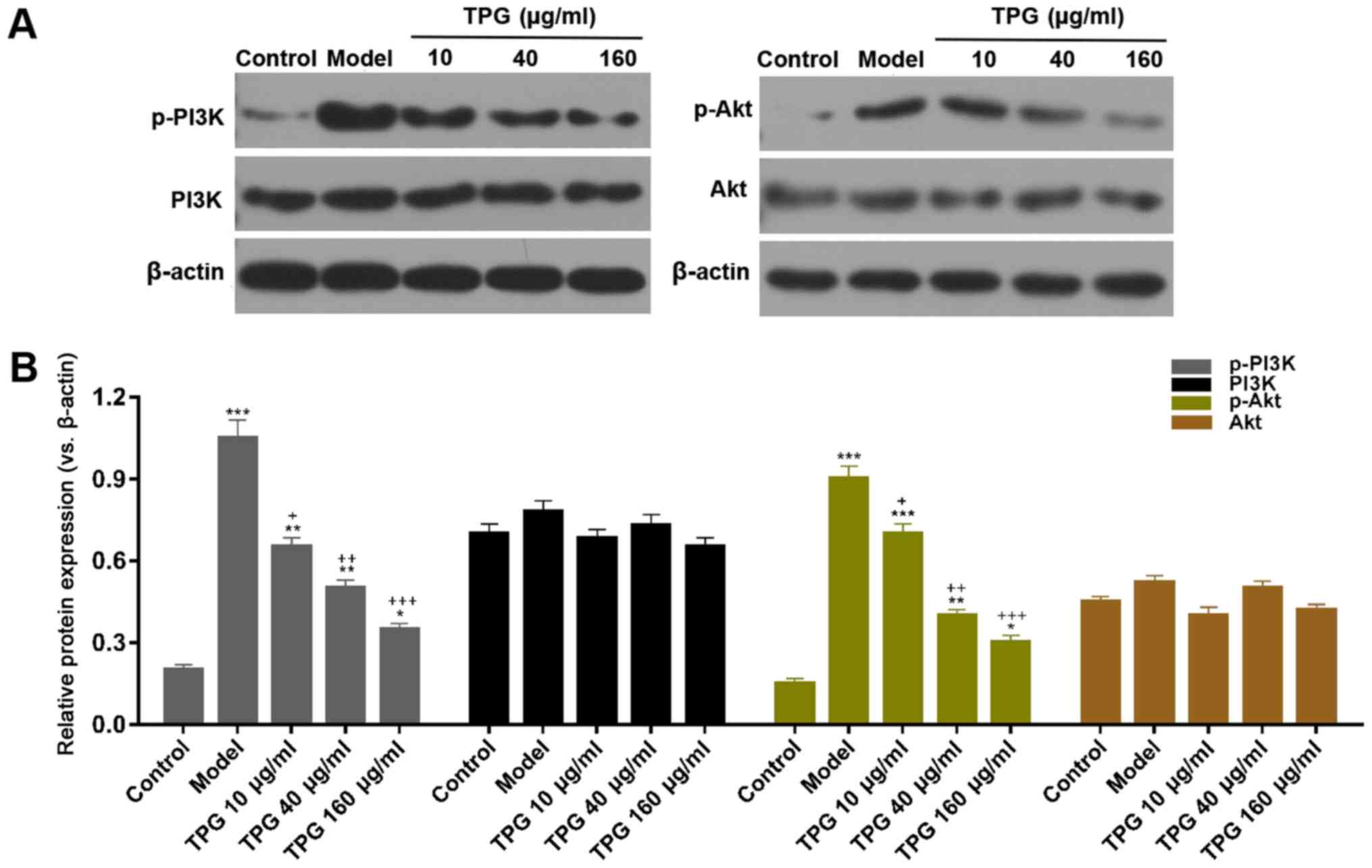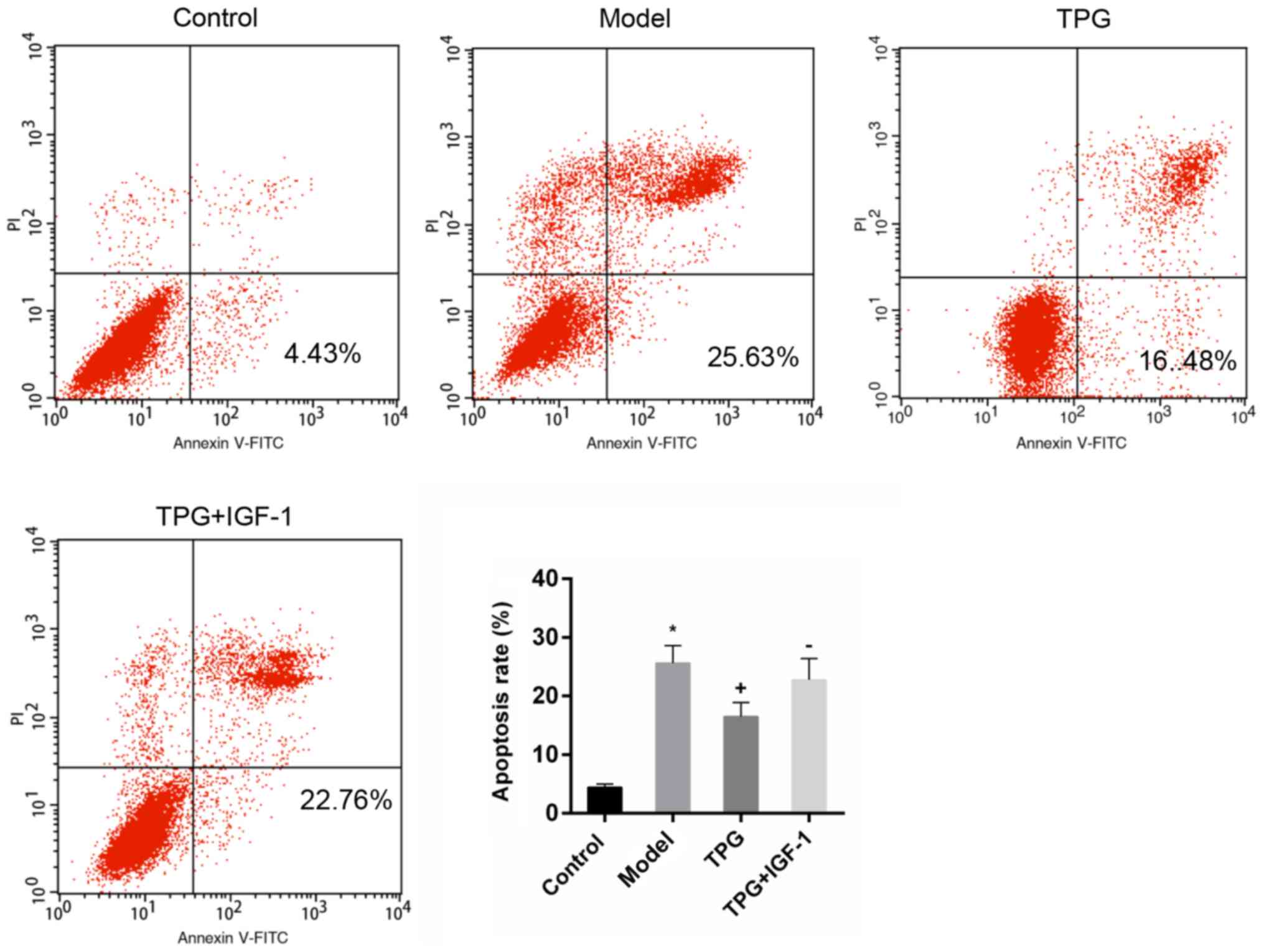|
1
|
Kim Y, Keogh JB and Clifton PM: Benefits
of nut consumption on insulin resistance and cardiovascular risk
factors: Multiple potential mechanisms of actions. Nutrients.
9:pii: E1271. 2017. View Article : Google Scholar
|
|
2
|
McCarthy CP, Bhambhani V, Pomerantsev E
and Wasfy JH: In-hospital outcomes in invasively managed acute
myocardial infarction patients who receive morphine. J Interv
Cardiol. 31:150–158. 2018. View Article : Google Scholar : PubMed/NCBI
|
|
3
|
Jennings RB, Sommers HM, Smyth GA, Flack
HA and Linn H: Myocardial necrosis induced by temporary occlusion
of a coronary artery in the dog. Arch Pathol. 70:68–78.
1960.PubMed/NCBI
|
|
4
|
Sodha NR, Clements RT, Feng J, Liu Y,
Bianchi C, Horvath EM, Szabo C and Sellke FW: The effects of
therapeutic sulfide on myocardial apoptosis in response to
ischemia-reperfusion injury. Eur J Cardiothorac Surg. 33:906–913.
2008. View Article : Google Scholar : PubMed/NCBI
|
|
5
|
Gorenkova N, Robinson E, Grieve DJ and
Galkin A: Conformational change of mitochondrial complex I
increases ROS sensitivity during ischemia. Antioxid Redox Signal.
19:1459–1468. 2013. View Article : Google Scholar : PubMed/NCBI
|
|
6
|
Ekeløf S, Jensen SE, Rosenberg J and
Gögenur I: Reduced oxidative stress in STEMI patients treated by
primary percutaneous coronary intervention and with antioxidant
therapy: A systematic review. Cardiovasc Drugs Ther. 28:173–181.
2014. View Article : Google Scholar : PubMed/NCBI
|
|
7
|
Han J, Wang D, Ye L, Li P, Hao W, Chen X,
Ma J, Wang B, Shang J, Li D and Zheng Q: Rosmarinic acid protects
against inflammation and cardiomyocyte apoptosis during myocardial
ischemia/reperfusion injury by activating peroxisome
proliferator-activated receptor gamma. Front Pharmacol. 8:4562017.
View Article : Google Scholar : PubMed/NCBI
|
|
8
|
Zhang X, Du Q, Yang Y, Wang J, Dou S, Liu
C and Duan J: The protective effect of Luteolin on myocardial
ischemia/reperfusion (I/R) injury through TLR4/NF-κB/NLRP3
inflammasome pathway. Biomed Pharmacother. 91:1042–1052. 2017.
View Article : Google Scholar : PubMed/NCBI
|
|
9
|
Chang CC, Yuan W, Lin YL, Liu RS, Juan YC,
Sun WH, Tsay HJ, Huang HC, Lee YC and Liu HK: Evaluation of the in
vivo therapeutic effects of radix paeoniae rubra ethanol extract
with the hypoglycemic activities measured from multiple cell-based
assays. Evid Based Complement Alternat Med. 2016:32627902016.
View Article : Google Scholar : PubMed/NCBI
|
|
10
|
Huang YQ, Ma X, Wang J, Zhao YL, Wang JB,
Chen Z, Zhu Y, Shan LM, Wei SZ, Wang J and Xiao XH: Therapeutic
efficacy and safety of paeoniae radix rubra formulae in relieving
hyperbilirubinemia induced by viral hepatitis: A meta-analysis.
Front Pharmacol. 7:632016. View Article : Google Scholar : PubMed/NCBI
|
|
11
|
Xie P, Cui L, Shan Y and Kang WY:
Antithrombotic effect and mechanism of radix paeoniae rubra. Biomed
Res Int. 2017:94750742017. View Article : Google Scholar : PubMed/NCBI
|
|
12
|
Dou ZH, Luo L and Lu D: Purification of
total paeony glycoside by macroporous resin with double indices of
albiflorin and paeoniflorin. Zhong Yao Cai. 32:1282–1284. 2009.(In
Chinese). PubMed/NCBI
|
|
13
|
Lin MY, Chiang SY, Li YZ, Chen MF, Chen
YS, Wu JY and Liu YW: Anti-tumor effect of Radix Paeoniae Rubra
extract on mice bladder tumors using intravesical therapy. Oncol
Lett. 12:904–910. 2016. View Article : Google Scholar : PubMed/NCBI
|
|
14
|
Zhan LY, Xia ZY, Chen C and Wang XY:
Effect of Radix Paeoniae Rubra on the expression of HO-1 and iNOS
in rats with endotoxin-induced acute lung injury. Chin J Traumatol.
9:181–186. 2006.PubMed/NCBI
|
|
15
|
Gu JF, Feng L, Yuan JR, Zhang MH and Jia
XB: Effect of different composition structures of total paeony
glycoside component and total phenolic acid component of Chuanxiong
Rhizome on human umbilical vein endothelial cells with hypoxic
injury. Zhongguo Zhong Yao Za Zhi. 40:920–926. 2015.(In Chinese).
PubMed/NCBI
|
|
16
|
Xu HY, Chen ZW and Wu YM: Antitumor
activity of total paeony glycoside against human chronic myelocytic
leukemia K562 cell lines in vitro and in vivo. Med Oncol.
29:1137–1147. 2012. View Article : Google Scholar : PubMed/NCBI
|
|
17
|
Liu C, Wang J and Yang J: Study on
activating blood and eliminating stasis of total paeony
glycoside(TPG). Zhong Yao Cai. 23:557–560. 2000.(In Chinese).
PubMed/NCBI
|
|
18
|
Long J, Gao M, Kong Y, Shen X, Du X, Son
YO, Shi X, Liu J and Mo X: Cardioprotective effect of total paeony
glycosides against isoprenaline-induced myocardial ischemia in
rats. Phytomedicine. 19:672–676. 2012. View Article : Google Scholar : PubMed/NCBI
|
|
19
|
Ma RQ, Chen JW, Pang JX, Lan XJ and Qiu
CH: Protective effects of total paeony glycoside against global
cerebral ischemia-reperfusion injury in gerbils. Di Yi Jun Yi Da
Xue Xue Bao. 25:471–473. 2005.(In Chinese). PubMed/NCBI
|
|
20
|
Yang J, Wang J and Liu C: Protective
effects of total paeony glycoside on cerebral ischemia mice. Zhong
Yao Cai. 24:124–126. 2001.(In Chinese). PubMed/NCBI
|
|
21
|
Parcellier A, Tintignac LA, Zhuravleva E
and Hemmings BA: PKB and the mitochondria: AKTing on apoptosis.
Cell Signal. 20:21–30. 2008. View Article : Google Scholar : PubMed/NCBI
|
|
22
|
Pei R, Si T, Lu Y, Zhou JX and Jiang L:
Salvianolic acid A, a novel PI3K/Akt inhibitor, induces cell
apoptosis and suppresses tumor growth in acute myeloid leukemia.
Leuk Lymphoma. 59:1959–1967. 2018. View Article : Google Scholar : PubMed/NCBI
|
|
23
|
Zhang R, Zhang L, Manaenko A, Ye Z, Liu W
and Sun X: Helium preconditioning protects mouse liver against
ischemia and reperfusion injury through the PI3K/Akt pathway. J
Hepatol. 61:1048–1055. 2014. View Article : Google Scholar : PubMed/NCBI
|
|
24
|
Zhao X, Xiang Y, Cai C, Zhou A, Zhu N and
Zeng C: Schisandrin B protects against myocardial
ischemia/reperfusion injury via the PI3K/Akt pathway in rats. Mol
Med Rep. 17:556–561. 2018.PubMed/NCBI
|
|
25
|
Zhou J, Du T, Li B, Rong Y, Verkhratsky A
and Peng L: Crosstalk between MAPK/ERK and PI3K/AKT signal pathways
during brain ischemia/reperfusion. ASN Neuro. 7:pii:
1759091415602463. 2015. View Article : Google Scholar
|
|
26
|
Macrae VE, Ahmed SF, Mushtaq T and
Farquharson C: IGF-I signalling in bone growth: Inhibitory actions
of dexamethasone and IL-1beta. Growth Horm IGF Res. 17:435–439.
2007. View Article : Google Scholar : PubMed/NCBI
|
|
27
|
Wang H, Zhang Q, Zhang L, Little PJ, Xie
X, Meng Q, Ren Y, Zhou L, Gao G, Quirion R and Zheng W:
Insulin-like growth factor-1 induces the phosphorylation of PRAS40
via the PI3K/Akt signaling pathway in PC12 cells. Neurosci Lett.
516:105–109. 2012. View Article : Google Scholar : PubMed/NCBI
|
|
28
|
Wu WY, Wang WY, Ma YL, Yan H, Wang XB, Qin
YL, Su M, Chen T and Wang YP: Sodium tanshinone IIA silate inhibits
oxygen-glucose deprivation/recovery-induced cardiomyocyte apoptosis
via suppression f the NF-κB/TNF-α pathway. Br J Pharmacol.
169:1058–1071. 2013. View Article : Google Scholar : PubMed/NCBI
|
|
29
|
He LN, Yang J, He SB, Wang J and Liu C:
Protective effect of total paeony glocoside against ischemia injury
in cultured primary cortex neurons. Chin J Clin Pharmacol
Therapeut. 1:1–6. 2000.
|
|
30
|
Livak KJ and Schmittgen TD: Analysis of
relative gene expression data using real-time quantitative PCR and
the 2(-Delta Delta C(T)) method. Methods. 25:402–408. 2001.
View Article : Google Scholar : PubMed/NCBI
|
|
31
|
Stitt TN, Drujan D, Clarke BA, Panaro F,
Timofeyva Y, Kline WO, Gonzalez M, Yancopoulos GD and Glass DJ: The
IGF-1/PI3K/Akt pathway prevents expression of muscle
atrophy-induced ubiquitin ligases by inhibiting FOXO transcription
factors. Mol Cell. 14:395–403. 2004. View Article : Google Scholar : PubMed/NCBI
|
|
32
|
Chua CC, Gao J, Ho YS, Xiong Y, Xu X, Chen
Z, Hamdy RC and Chua BH: Overexpression of IAP-2 attenuates
apoptosis and protects against myocardial ischemia/reperfusion
injury in transgenic mice. Biochim Biophys Acta. 1773:577–583.
2007. View Article : Google Scholar : PubMed/NCBI
|
|
33
|
Yaomura T, Tsuboi N, Urahama Y, Hobo A,
Sugimoto K, Miyoshi J, Matsuguchi T, Reiji K, Matsuo S and Yuzawa
Y: Serine/threonine kinase, Cot/Tpl2, regulates renal cell
apoptosis in ischaemia/reperfusion injury. Nephrology (Carlton).
13:397–404. 2008. View Article : Google Scholar : PubMed/NCBI
|
|
34
|
Raza A, Dikdan G, Desai KK, Shareef A,
Fernandes H, Aris V, de la Torre AN, Wilson D, Fisher A,
Soteropoulos P and Koneru B: Global gene expression profiles of
ischemic preconditioning in deceased donor liver transplantation.
Liver Transpl. 16:588–599. 2010.PubMed/NCBI
|
|
35
|
Tsujimoto Y, Finger LR, Yunis J, Nowell PC
and Croce CM: Cloning of the chromosome breakpoint of neoplastic B
cells with the t(14;18) chromosome translocation. Science.
226:1097–1099. 1984. View Article : Google Scholar : PubMed/NCBI
|
|
36
|
Wesierska-Gadek J, Gueorguieva M,
Wojciechowski J and Tudzarova-Trajkovska S: In vivo activated
caspase-3 cleaves PARP-1 in rat liver after administration of the
hepatocarcinogen N-nitrosomorpholine (NNM) generating the 85 kDa
fragment. J Cell Biochem. 93:774–787. 2004. View Article : Google Scholar : PubMed/NCBI
|
|
37
|
Woo M, Hakem R, Soengas MS, Duncan GS,
Shahinian A, Kägi D, Hakem A, McCurrach M, Khoo W, Kaufman SA, et
al: Essential contribution of caspase 3/CPP32 to apoptosis and its
associated nuclear changes. Genes Dev. 12:806–819. 1998. View Article : Google Scholar : PubMed/NCBI
|
|
38
|
Ansley DM and Wang B: Oxidative stress and
myocardial injury in the diabetic heart. J Pathol. 229:232–241.
2013. View Article : Google Scholar : PubMed/NCBI
|
|
39
|
Elahi MM, Flatman S and Matata BM: Tracing
the origins of postoperative atrial fibrillation: The concept of
oxidative stress-mediated myocardial injury phenomenon. Eur J
Cardiovasc Prev Rehabil. 15:735–741. 2008. View Article : Google Scholar : PubMed/NCBI
|
|
40
|
Ravindran S, Boovarahan SR, Shanmugam K,
Vedarathinam RC and Kurian GA: Sodium thiosulfate preconditioning
ameliorates ischemia/reperfusion injury in rat hearts via reduction
of oxidative stress and apoptosis. Cardiovasc Drugs Ther.
31:511–524. 2017. View Article : Google Scholar : PubMed/NCBI
|
|
41
|
Ni Z and Yi J: Oxymatrine induces
nasopharyngeal cancer cell death through inhibition of PI3K/AKT and
NFκB pathways. Mol Med Rep. 16:9701–9706. 2017. View Article : Google Scholar : PubMed/NCBI
|
|
42
|
Xu H, Zou S and Xu X: The β-glucan from
Lentinus edodes suppresses cell proliferation and promotes
apoptosis in estrogen receptor positive breast cancers. Oncotarget.
8:86693–86709. 2017.PubMed/NCBI
|
|
43
|
Hui Y, Chengyong T, Cheng L, Haixia H,
Yuanda Z and Weihua Y: Resveratrol attenuates the cytotoxicity
induced by amyloid-β1–42 in PC12 cells by upregulating heme
oxygenase-1 via the PI3K/Akt/Nrf2 pathway. Neurochem Res.
43:297–305. 2018. View Article : Google Scholar : PubMed/NCBI
|
|
44
|
Li Y, Xia J, Jiang N, Xian Y, Ju H, Wei Y
and Zhang X: Corin protects H2O2-induced
apoptosis through PI3K/AKT and NF-κB pathway in cardiomyocytes.
Biomed Pharmacother. 97:594–599. 2018. View Article : Google Scholar : PubMed/NCBI
|
|
45
|
Ha T, Hua F, Liu X, Ma J, McMullen JR,
Shioi T, Izumo S, Kelley J, Gao X, Browder W, et al:
Lipopolysaccharide-induced myocardial protection against
ischaemia/reperfusion injury is mediated through a
PI3K/Akt-dependent mechanism. Cardiovasc Res. 78:546–553. 2008.
View Article : Google Scholar : PubMed/NCBI
|
|
46
|
Tang L, Mo Y, Li Y, Zhong Y, He S, Zhang
Y, Tang Y, Fu S, Wang X and Chen A: Urolithin A alleviates
myocardial ischemia/reperfusion injury via PI3K/Akt pathway.
Biochem Biophys Res Commun. 486:774–780. 2017. View Article : Google Scholar : PubMed/NCBI
|
|
47
|
Thokala S, Inapurapu S, Bodiga VL, Vemuri
PK and Bodiga S: Loss of ErbB2-PI3K/Akt signaling prevents zinc
pyrithione-induced cardioprotection during ischemia/reperfusion.
Biomed Pharmacother. 88:309–324. 2017. View Article : Google Scholar : PubMed/NCBI
|















